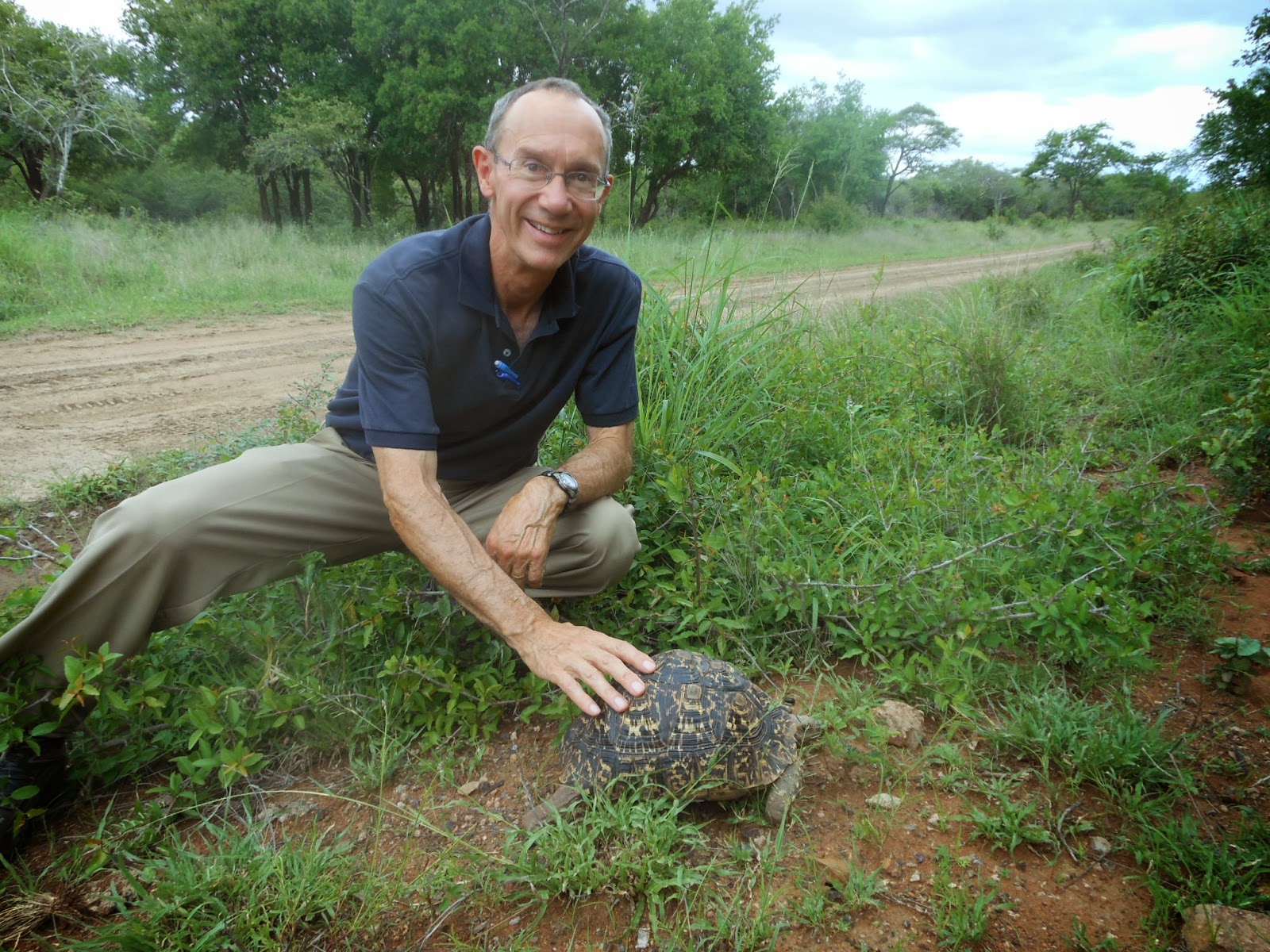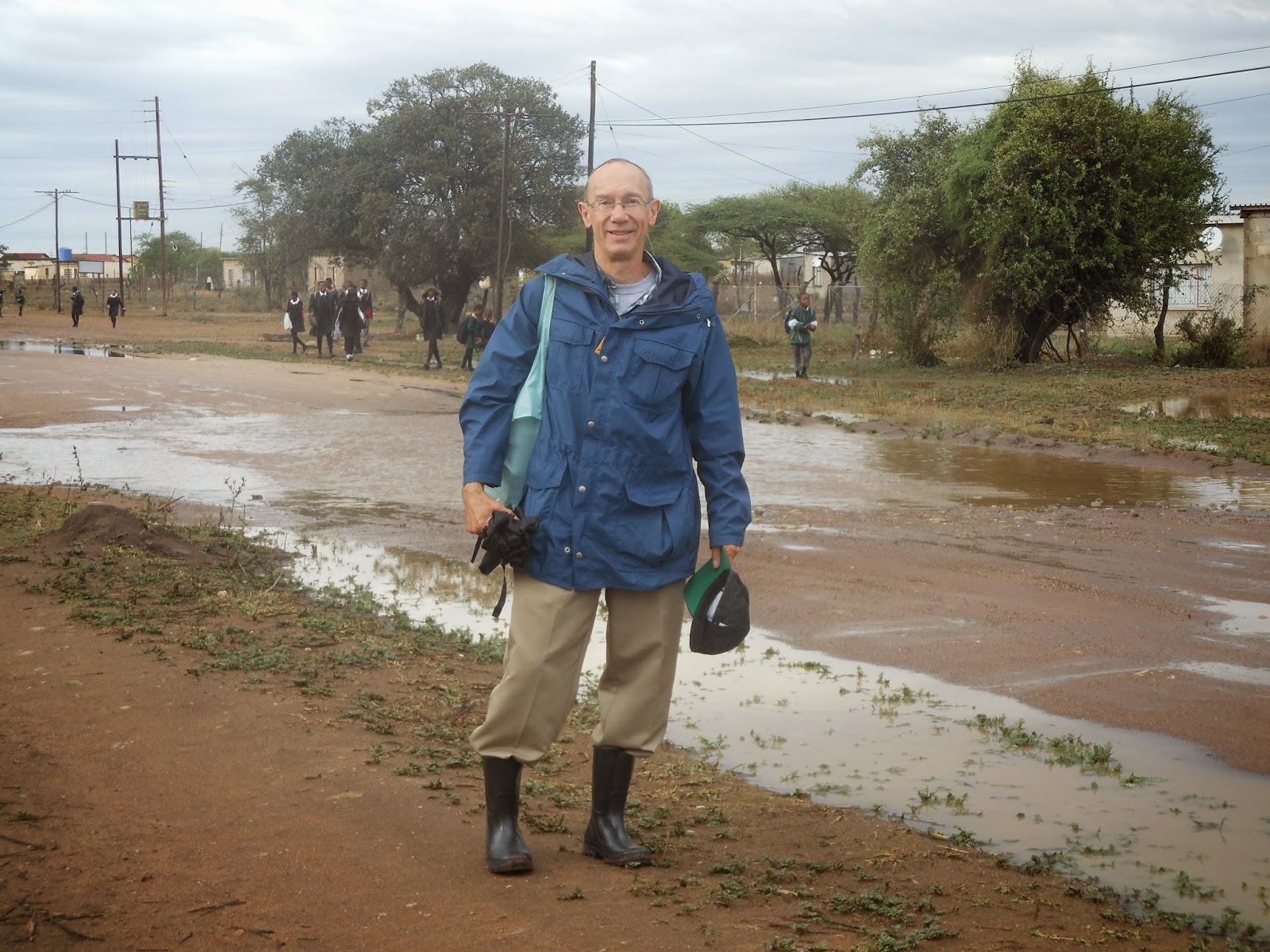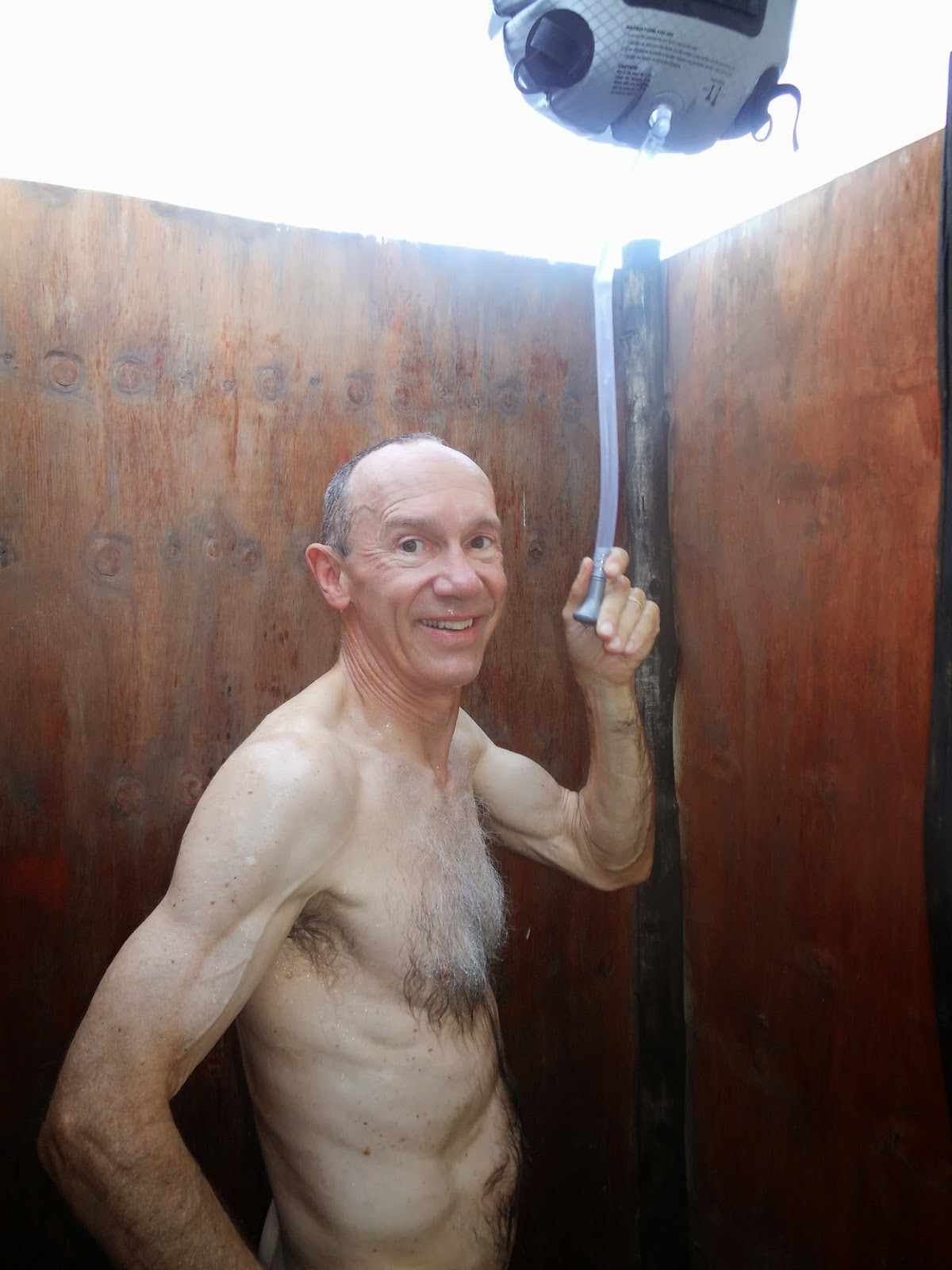Friday day we attended part of Incwala,
roughly translated as “first fruits festival”, one of the 2 key
peculiarly Swazi holidays. (The other is in August, when teenage
“virgins” (defined as not having given birth) dance for the king;
some years he chooses a new wife from among them, as he did this
year. Those of us who are trying to prevent the spread of HIV
through what is known in the trade as “multiple concurrent sexual
partners” would prefer a different behavioral modeling, but I
digress.)
The date of
Incwala is chosen in part around the full moon and the solstice, but
the particular day was decreed by the king only a week or so ago, and
businesses were instructed not to open, or to close by 1 PM.
(Imagine the howl from retailers in the US if that occurred 5 days
before Christmas – there have been decorations and western-style
Christmas carols in the stores since mid-November, or earlier.)
Previously “regiments” of young men had walked to the Indian
Ocean and to a river in South Africa (the Limpopo) and brought back
water; I've noted that both are areas once included in Swaziland,
and wondered whether there is some territorial longing involved here,
but those I have asked deny it. As these “water people” come
through the communities they impose a small “voluntary” fine,
which reminded us a little of the monks in Thailand; we think the
man who hit us up was disappointed in our contribution, but we are
volunteers.
After the water is
brought back the regiments and other men camp in fields near the
king's residence in the beautiful Ezulweni Valley. Several days of
rituals involved gathering sacred herbs, slaughtering a bull
(reputedly with their bare hands!), weeding the king's fields, and
gathering wood for fires and the King's Kraal (“corral” is
derived from that word) culminate in the main event, which we
attended.
The stores in
Manzini, the commercial center of the country, were mostly closed,
and those that were open were nearly empty, as were the streets as we
came through in the morning. We took a khumbi to the seat of
government, where the King's residence, Kraal, and the building where
parliament meets are all located together (so, the equivalent of the
Washington DC mall). We arrived by 10:30, and little was happening,
met up with some other PCVs, had some lunch, waited some more, and by
2 PM wandered towards the King's Kraal, shown in the background of
this picture of Abdul and Lauren, PCVs from the group ahead of us.
We then had to
separate, with the women going through a separate entrance, and
getting a better view, because there were far fewer of them.
My friend Abdul,
from the PC group ahead of us, and I went through the metal detector,
passed the ornate marching band, and into the Kraal, and joined
around 3 thousand men in rows around our end of the Kraal, which was
around 120 yards in diameter. The men were dressed as I show in the
picture, which is of the Member of Parliament from our area (on my
right), although the MP has more of a headdress than most. The man
beside him did not go in to “dance;” I was one of only a very
few in “civvies” who went into the Kraal. I wonder if that
offended some?
The crowd was
mostly silent except for a rhythmic low chant and treading of feet in
time, and occasional shrill whistles. Manifestly the Kraal continues
to be used for its original purpose, when Incwala was not happening,
as piles all around, including right at my feet, attested.
Throughout this
country we have been generally warmly welcomed, but here we were only
tolerated. When I wasn't holding my ritual branch (4 Rand = 40 US
cents) correctly (I was leaning on it – a long day), and especially
when I tried to take a picture inside the Kraal, I was corrected,
sternly concerning the camera. No one offered an explanation, partly
because they were concentrating on what they were doing, and partly
because men in their 40s and up in this country are the weakest in
English, and my siSwati is even weaker than their English. Many men
were there with their sons in what was clearly an oft-repeated
generational ritual. Many greeted each other warmly; the regiments
are drawn from throughout the country, in a conscious and, I think,
highly successful attempt to instill friendships and a feeling of
national unity.
The King came out
and walked around the enclosure and performed some rituals, but I
could barely see. I've read about them since. We needed to catch a
khumbi and then a bus back to our village and walk 2 km, and we don't
like to be on our road after dark, so we had arranged with the ladies
to meet outside the Kraal at 4. When we got back to our homestead
our host family was fascinated that we had attended Incwala. Their
explanation of the fact that this was the first event I'd attended of
more than a dozen people in this country that did not open and close
with a Christian prayer was that the whole event was worship –
thanks for the first fruits, as well as a celebration of kingship.
Nonetheless, I was struck by the total absence of any Christian
reference, in a central ceremony in a country that is insistently and
aggressively Christian in every other public event. My outsider's
explanation is that the Christian overlay is only 170 years old here
and goes only so deep, and this ritual is older and parallel to, but
separate from, Swazi Christianity.
Those of you who
have been reading our blogs probably think we spend all our time in
game preserves and cultural events. I wish. Those visits are the
photo ops. Everyone has gone home from the schools, but Nomphumelelo
has become so frustrated with the unavailability of library at the
Railway Primary School (the better school where we have been
teaching) that we've spent most days this past week labeling,
alphabetizing, and listing on our computer the books they received
last fall (May, '13) through the Books For Africa application of our
predecessor PCVs. We've been reading to the children on the
playground, and they've become more insistent, asking when they can
read and take out the books from the library. When, indeed. It's
really hard to get some things to happen in this country, and the
teacher who was supposed to get the library up is not interested, so
nothing was done. Here is the library, as we are working on the
organization. New Home Ec classrooms are being completed and
construction materials for that are stored in the library which is
not, after all, being used for anything now. Grrr.

We have heard from
some of you that you have donated to Books for Africa in response to
our earlier blog requests. Thank you for your generous responses –
we are very touched that you would support us and a project important
to us this way. If we are successful in our application (should hear
any day now) we will do all we can to be sure the books quickly
become available to the students at the local high school for which
we applied. We do not have a list of who gave yet, which is why we
have not been able to thank you, so we will here – thanks very,
very much!! We think these books are greatly desired, and important.
I have been trying
to find a way to reduce the size of pictures that I send, to save me
and you time downloading and help them fit on your screen. I think I
have a way. Let me know if the pictures in this blog are a better
size, or not.









































